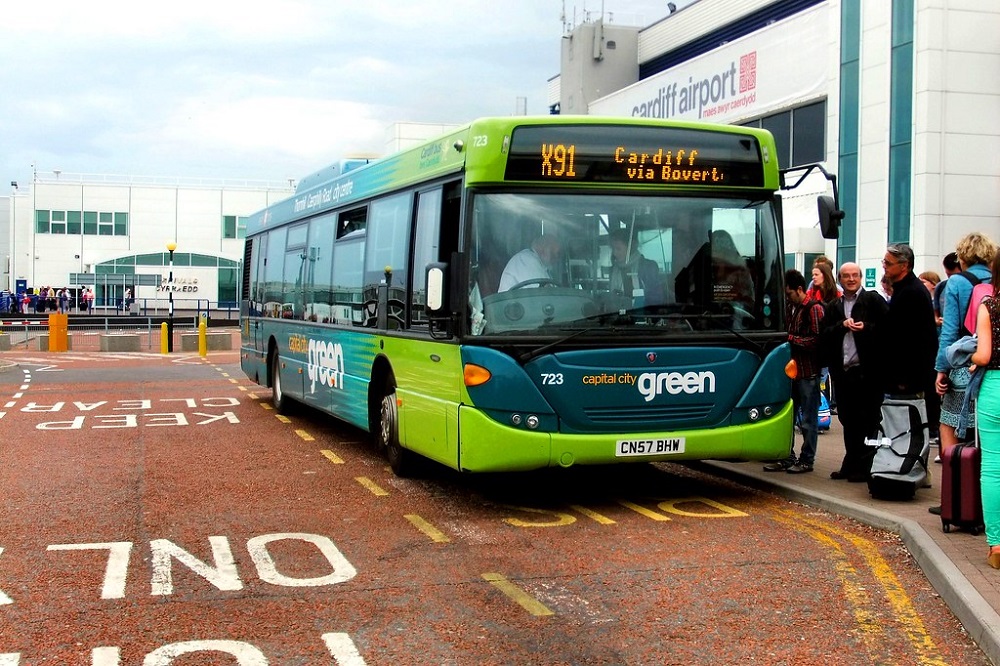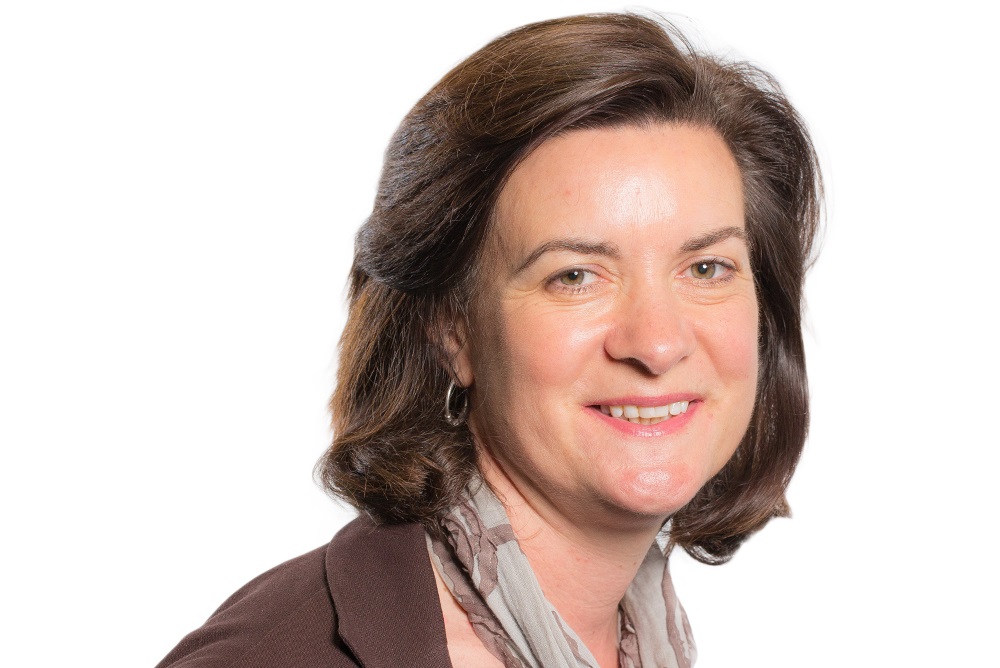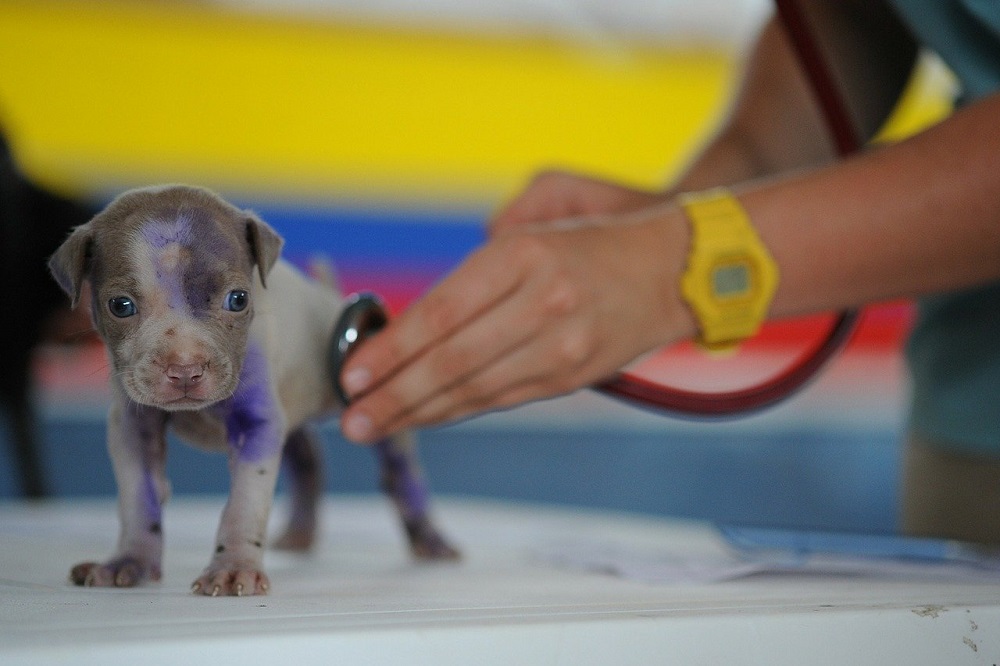Senedd roundup: Concerns over surge in numbers of children being taken into care

Owen Donovan, Senedd Home
The Motion
The Senedd:
- Notes the Public Accounts Committee’s report into care experienced children and young people and the Ministerial Advisory Group for Improving Outcomes for Children Programme’s Annual Report 2019.
- Further notes that the life chances of looked-after children and care leavers are significantly poorer than those children who are not in care.
- Regrets that the number of looked after children in Wales has risen by 34% in the last 15 years and that nearly 10% of children in care have been in three or more placements.
- Calls on the Welsh Government to urgently review local authority plans on reducing the numbers of looked-after children; assist local authorities in recruiting 550 Welsh foster families to cover the gaps; investigate financial and rehabilitative support for adoptive parents and roll out free positive parenting courses.
Situation slipping out of control
Shadow Social Services Minister, Janet Finch-Saunders AM (Con, Aberconwy), warned that the situation regarding looked-after children was getting out of control, with a 21% increase in the proportion of children taken into care since the end of the last Senedd term in 2016.
Looked-after children were more likely than the population as a whole to underachieve at school and suffer mental health problems.
“Wales can and should facilitate better futures for our children than this, and there are steps that we can take. For example, again, the Public Accounts Committee’s report recommended that all care-experienced children are routinely made aware of their right to an advocate and provided with clear information about how to access the range of available advocacy services. These are not big asks, but they need to be in place.”
– Shadow Social Services Minister, Janet Finch-Saunders AM
Sian Gwenllian AM (Plaid, Arfon) said poverty was a driving factor behind changing needs for looked-after children and there are also issues that we face now – county lines drug trafficking, historic sexual abuse, social media – that social services didn’t have to deal with in the past. Prevention was ultimately the best solution and that had to start in schools.
Neil McEvoy AM (WNP, South Wales Central) said cases involving looked-after children took up a lot of his time. He agreed with the Children’s Commissioner’s recent view that profit should be taken out of the care system.
Mohammad Asghar AM (Con, South Wales East) made another link between care and deprivation, with children living in the 10% most-deprived area being sixteen times more likely to be subject to care procedures than those living in the 10% least-deprived areas. Suzy Davies AM (Con, South Wales West) questioned whether the pupil deprivation grant had really made much of a difference and wasn’t simply being pocketed by education consortia.
Rhianon Passmore AM (Lab, Islwyn) welcomed Welsh Government investment in edge-of-care services, which are now in place in every local authority.
Stable placements are important
Deputy Minister for Health & Social Services, Julie Morgan (Lab, Cardiff North), said that while the overall number of looked-after children was increasing (albeit much more slowly than previous years), the number of children starting looked-after proceedings actually decreased.
“It’s very important that children have stable placements. The 2018 and 2019 data show that 9% of children had three or more placement moves. These figures have remained stable over a period of time, and I think we’ve just got to recognise that, sometimes, placement moves are necessary and are in the best interest, but we want children to have as much stability as possible.”
– Deputy Minister for Health & Social Services, Julie Morgan
Repeating that the reasons behind this are complex, but the Deputy Minister was in no doubt that the Welsh Government’s priority to reduce the numbers of looked-after children focused minds in local government.

( CC PDM 1.0)
Cardiff Airport to take a big hit after airline folds
Passenger growth at Cardiff Airport has been thrown into doubt after Flybe – once one of Europe’s largest regional airlines – entered administration yesterday (5th March), with more than 2,000 jobs expected to be lost.
The sudden collapse was blamed on increasing flight cancellations as a result of coronavirus.
Earlier this year, Flybe agreed a deal with the UK Government for a cut in air passenger duty and a £100 million investment to stave off a collapse. However, delays to the UK budget seemingly ended hope of that. The UK Government also ruled out devolving air passenger duty to Wales in line with Scotland and Northern Ireland.
Flybe operated around half of all flights to and from Cardiff Airport and the airport was once considered a major base for the airline.
Some routes – Anglesey, Teeside and Aberdeen – will be maintained by Eastern Airways. However, routes to other major UK cities, Paris and Dublin are set to be lost for the foreseeable future.
Chief Executive of Cardiff Airport, Debra Bowen Rees, said: “We are actively talking to a number of airlines about the opportunity that exists in flying to and from south Wales. Given the Flybe news, we will focus on filling the core domestic routes which Flybe serve for the region.”
It was recently revealed Cardiff Airport has asked for an additional £6.8 million in commercial loans from the Welsh Government and the government’s involvement and support for the airport has once again been brought into question by opposition parties in the Senedd.

Care provided to Welsh patients at English mental health units “must be up to scratch”
The Motion (Final/Amended Version)
The Senedd:
- Notes concerns about the quality of care raised by relatives of Welsh patients in inpatient mental health units in England.
- Calls on Welsh Government to ensure that distance from home is considered as a key factor for people who require specialist mental health in-patient support and also ensure robust arrangements are in place to monitor the quality and safety of placements in England, including collaborative working with the Care Quality Commission.
“There’s no sense to it”
Rhun ap Iorwerth AM (Plaid, Ynys Môn) said there were serious questions around the basic principle of sending vulnerable people a long way from home. He raised the concerns of constituents who, in one case, hasn’t been able to see his autistic son for three years and an anorexia patient only allow three 10-minute calls per-week with relatives.
Historic patterns of care commissioning had placed people in this situation.
“It would be one thing if these kinds of cases were rare, but they’re not. Hafal mentions a survey over a period where they couldn’t fill the beds that they had in their unit in Pontardawe, where 30% of the 1,000 people who were part of the study were placed in hospitals in England. There is no sense to that.”
– Rhun ap Iorwerth AM
Shadow Health Minister, Angela Burns AM (Con, Carms. W. & S. Pembs) visited some of the units in England which have (England’s) Care Quality Commission black marks against it, describing it as “grim” and “prison-like”. There was a shortage of medium-secure mental health units in Wales and that was, ultimately, why some patients are being sent 200-300 miles away.
Another area with a stark lack of provision was in perinatal/mother and baby care – currently subject to a Health Committee inquiry.
Delyth Jewell AM (Plaid, South Wales East) accused Labour of breaking a budget agreement with Plaid Cymru for a permanent unit to be established. Instead, an interim unit will be opened within a psychiatric hospital. Some mothers were facing a choice between receiving in-patient mental health support locally but being separated from their child, or being sent to a specialist mother and baby unit possibly up to 10 hours travel time away (factoring in baby-related stops).
“….the message to the Welsh Government is this: these women need this specialist support unit. The experts agree. You promised to provide it. Please get on with it before any new mothers have to suffer because of this scandalous inaction.”
– Delyth Jewell AM
Quality, value and distance considered when commissioning placements in England
Deputy Minister for Health & Social Services, Julie Morgan (Lab, Cardiff North) told the Senedd the Welsh Government’s investment in mental health aims to increase the proportion of people treated in the community, which has already led to a reduction in mental health hospital admissions.
That said, there will always be a need for highly-specialised services that may only be provided at units in England.
“Firstly, decisions are made on the quality and type of specialist care provided to ensure it meets the needs of the individual. Secondly, the commissioner considers the distance from home and any potential impact this might have on outcomes. And the final consideration will be the value or overall cost. So, quality, distance and value in that order are the key factors considered when placing people outside of Wales for specialist mental health in-patient care.”
– Deputy Minister for Health & Social Services, Julie Morgan
As mentioned earlier, an interim mother and baby unit is set to be established at Tonna Hospital near Neath by spring 2021, with services for women in the north set to be looked at too.
Vote
Plaid Cymru’s original motion was more strongly-worded, calling for English units receiving Welsh funding to be subject to Welsh inspection criteria and for the NHS to be banned from placing Welsh patients in poor quality English units – though it was rejected by 40-11. In the end, they abstained, which is neither approval or rejection of the reworded motion.

Appeal for patience as AMs are reassured “improvements are coming” to eating disorder services
The Motion
The Senedd:
- Notes Eating Disorders Awareness Week 2020 takes place from 2nd March to 8th March and the focus this year is on empowering and supporting families and friends.
- Believes that eating disorders are serious mental illnesses with high mortality rates; recovery is possible; families and friends can play a crucial role in supporting recovery.
- Commends those who worked on the Eating Disorder Service Review launched by the Welsh Government and its ambition to build a world-class and accessible eating disorder service for Wales
Regrets how long it took for the Welsh Government to respond to the outcome of the Review. - Calls on the Welsh Government and health boards, local authorities and all other stakeholders to ensure full implementation of the Eating Disorder Review recommendations.
“Dangerously long waits” for treatment
Bethan Sayed AM (Plaid, South Wales West) told the chamber there were multiple causes of eating disorders, but the number of people with a disorder may be under-counted as some people may not recognise they have one. People can recover, but in Wales, there’s the age-old problem of long waiting times and a postcode lottery to receive specialist treatment.
“The issue for many people is that the wait is often dangerously long and the provision of services is patchy in many areas. In some areas they’re very good, but in others they’re almost non-existent. If we look at mid-Wales, it’s very hard to get access to those services. And what we do need is more consistent support – when they have access to those services in the community, many people say that they don’t have those support groups to go to afterwards, where they can meet other people and where they can share their experiences with other people.”
– Bethan Sayed AM
Shadow Health Minister, Angela Burns AM (Con, Carms. W. & S. Pembs.) mentioned that many constituents have had to wait years to get any kind of treatment. The parents of some patients were told “Just nip to the Priory in London” – which is no answer.
Rhun ap Iorwerth AM (Plaid, Ynys Môn) recounted what guests at an eating disorder event earlier in the day told him – that they hadn’t realised there was a problem until it turned into a serious one. That convinced him of the need for urgent action.
“Four-week waiting time within two years” remains the goal
Deputy Minister for Health & Social Services, Julie Morgan (Lab, Cardiff North), said it was vital that the experiences of those struggling through eating disorders were central to policy development. The goals remain aligned to the review’s recommendations:
“The Health Minister wrote to health boards setting out the actions he expects to be taken in response to the review: reconfiguring services towards earlier intervention; working towards achieving NICE standards for eating disorders within two years and developing plans to achieve a four-week waiting time within two years.”
– Deputy Minister for Health & Social Services, Julie Morgan
Extra funding will be needed (estimated at around £9 million) with officials developing funding plans. While it was clear many people want this to move faster, the conclusions of the review were significant and require detailed analysis.
Vote
The motion was approved by 43 votes to eight.

Should obesity be treated as a disease?
This week’s short debate came from Jenny Rathbone AM (Lab, Cardiff Central) on the subject of obesity.
The food industry should stop targeting children
While obesity is generally defined as excess body fat which adversely affects a person’s health, but while it has clear health implications – potentially cutting a person’s life expectancy by up to 10 years – it’s also a social and economic problem.
She questioned whether the Welsh Government’s strategy was bold enough to deal with the underlying causes of obesity – particularly concerning the food industry and junk food advertising.
“We have to stop the food industry from targeting children to eat the wrong things: that is completely unethical. And I also hope that we will be able to use the reregulation of the buses….as an opportunity to also outlaw junk food advertising on public transport. I think it’s very important that we use our public procurement muscle to ban junk food from NHS health centres and hospitals, and I applaud Cardiff and the Vale health board for removing all junk food from 13 of its hospital cafes and canteens, which it will be extending to its two community hospitals later this year.”
– Jenny Rathbone AM
There was also a need to strengthen rules around school nutrition and there should now be an expectation for all schools to have walking and cycling plans in place, possibly backed by vehicle exclusion zones around schools and a default 20mph speed limit.
If obesity was treated as a disease it may help address the stigmas attached to it and ensure there were clinical treatment options available – such as bariatric surgery – for those who need it.
Classing obesity as a disease wouldn’t change much in practical terms
Responding on behalf of the government, Deputy Minister for Economy & Transport, Lee Waters (Lab, Llanelli), said the numbers of people who are classed as obese increase each year, with over a quarter of Welsh four and five-year-olds are either obese or overweight.
That said, he didn’t think recognising obesity as a disease would lead to a massively different response to current initiatives, such as focusing on prevention and early intervention, as well as trying to increase physical activity.
“We know that having a consistent NHS response through the obesity pathway will help to play a significant contributory factor in this. However, what we cannot do is detract from the societal issues that we face to ensure that this is not an issue that defines the health of our population into the future.”
– Deputy Minister for Economy & Transport, Lee Waters

Eluned Morgan. Picture by the National Assembly. (CC BY 2.0)
Lack of targets will make it difficult to tell if the Welsh international strategy is working
Yesterday afternoon, AMs debated the External Affairs Committee’s report on the Welsh international strategy (one of the few committee reports I haven’t summarised – pdf).
“Frustrating” there are only three targets
Chair of the Committee, David Rees AM (Lab, Aberavon), expressed the Committee’s broader concerns that the number of targets to which progress can be measured was limited to just three.
“Frustratingly, the strategy contains only three measurable targets. To remind Members what these targets are: to raise Wales’s profile internationally by ensuring 500,000 connections internationally over the next five years….to grow the contribution made by exports to the economy by 5%, though we’re not sure over what period of time that covers; and to plant 15 million trees in Uganda by 2025.”
– Chair of the External Affairs Committee, David Rees AM
He also expressed disappointment that the Welsh Government rejected the Committee’s recommendation that there had to be a way to work across government departments – such as the creation of a Cabinet sub-committee. He urged the Minister to reconsider.
David Melding AM (Con, South Wales Central) was pleased by the focus on developing ties with the Welsh diaspora, saying there was “a lot of goodwill out there”. He also called for more to be made of Welsh history and culture, citing several examples of where Wales has either shaped development in Europe at various points in history or has a unique selling point.
Huw Irranca-Davies AM (Lab, Ogmore) later used the example of Llangeinor’s Richard Price who was the inspiration behind the French and American revolutions.
Dr Dai Lloyd AM (Plaid, South Wales West) thought there was a need to develop connections with smaller nations and stateless nations with a more natural connection with Wales – such as the Basque Country, Catalonia, Brittany, Slovenia and New Zealand etc.
Shadow External Affairs Minister, Darren Millar AM (Con, Clwyd West), brought up sports diplomacy and the successes there for Wales at the 2019 Rugby World Cup – calling for more to be done to being a major sporting event to Wales. Meanwhile, Rhun ap Iorwerth AM (Plaid, Ynys Môn) could say a lot about the weaknesses in the strategy, but at least it was happening; though this had to be only a “beginning of the journey”.
International relations have “never been more important”
International Affairs & Welsh Language Minister, Eluned Morgan (Lab, Mid & West Wales), promised to keep the committee in the loop on future developments in order for them to continually monitor progress.
There was no more important time to develop an international strategy in light of Brexit. Many of the Committee’s recommendations were taken forward and Wales is already on track to meet some of the targets – particularly Ugandan tree planting. A memorandum of understanding has also been signed with the Basque Country.
Work with the diaspora, however, will take some time:
“I recognise, on diaspora, there’s a huge amount of work to do. There are a lot of actors in this space already, as many people have said, and part of what we need to do is how do we get these people to work together. This is Wales, after all – we like to fall out with each other….So, today, I’ve been meeting with a group of people we’ve commissioned to provide a platform where all of these organisations can be working and co-operating.”
– International Affairs & Welsh Language Minister, Eluned Morgan

Photo by David Mark from Pixabay
Wales’ first vet school launched
Aberystwyth University has launched Wales’ first veterinary school. The plans were originally announced in 2016.
The new Schools of Veterinary Science will offer a five-year degree with the first intake from September 2021.
Vice-Chancellor Prof. Elizabeth Treasure said, “Agriculture and its related industries play such an important part in the Welsh economy and it is incumbent on us as universities to provide the people and the skills that will contribute to ensuring they thrive for years to come.”
Environment, Energy & Rural Affairs Minister described it as “great news” for veterinary science in Wales.
Changes to race and nationality categories for 2021 census
The 2021 Census in EnglandandWales will allow people from minority ethnic backgrounds to describe themselves as Welsh. The terms “Black Welsh” and “Asian Welsh” will be included for people to categorise themselves as.
The Office of National Statistics has asked the Welsh Government to review the questionnaire to ensure it’s as “inclusive as possible”.
Report: Widespread lack of understanding of devolution (shock, horror)
Recently-published research showed a general lack of understanding about devolution and the role of the Senedd amongst 16-18-year-olds and other politically-disengaged groups.
The report says many people struggled to name the First Minister and couldn’t understand the difference between the Welsh Government and Senedd.
Electoral Reform Society Cymru said: “They’re (young people) actually really engaged and they’re interested in what’s going on in politics. They just need to be given extra resources to ensure they’re so much more informed than we ever were at that age.”
16-18-year olds will be able to vote in the next Senedd election in 2021 following the passing of the Senedd & Elections Bill.
Support our Nation today
For the price of a cup of coffee a month you can help us create an independent, not-for-profit, national news service for the people of Wales, by the people of Wales.





What on earth Gvt doing planting trees in Uganda?. Seriously our country thanks to them is a third world country in places, we even have Oxfam running poverty campaigns here. What abot planting trees in the uplands of Wales to avoid floods. Uganda is a far far richer country than Wales and an independent nation.
Yep, kids in care and Gov. playing Buwana.